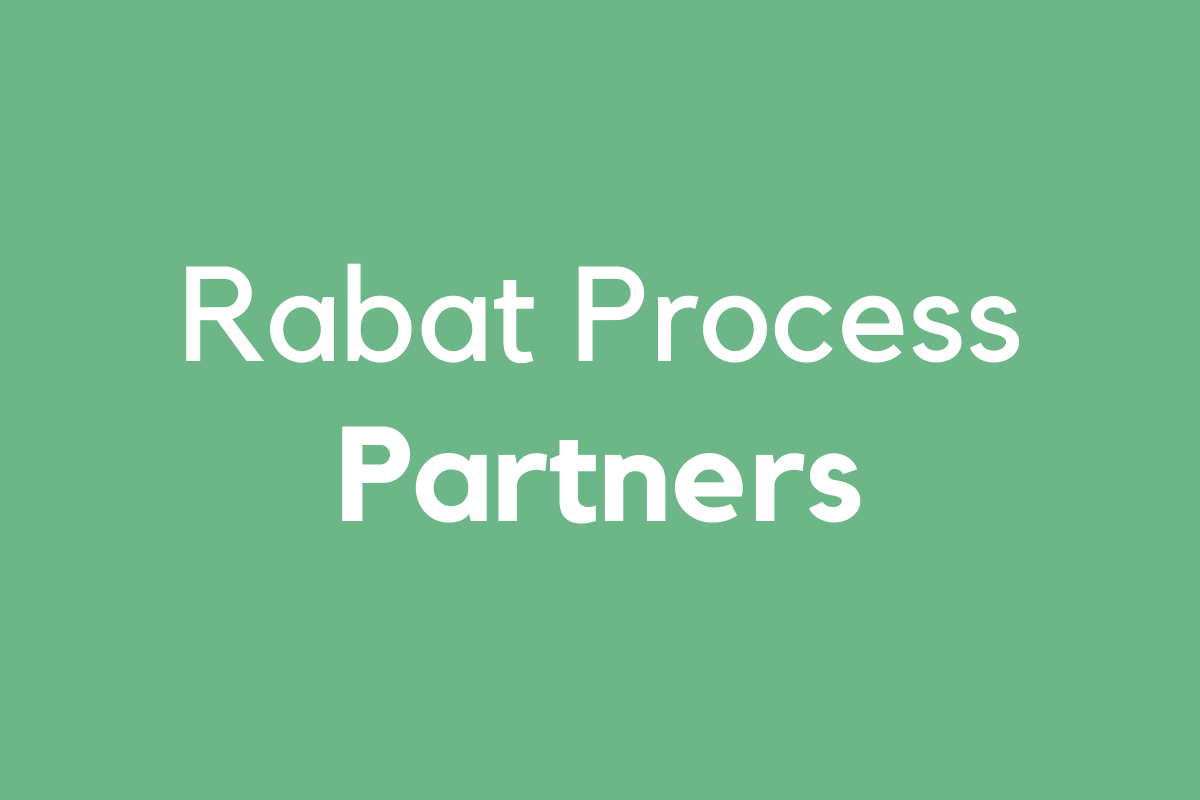The Euro-African Dialogue on Migration and Development (Rabat Process) is a regional migration dialogue between 57 state partners and additional key stakeholders, primarily African and European national authorities. It is a state-driven initiative, relying on the active participation of the National Focal Points, the strategic guidance provided by its Steering Committee, its Chair and the Reference Countries, as well as the support provided by the Rabat Process Secretariat.
The governance structure of the Rabat Process
These five entities are the building blocks that form the governance structure of the Rabat Process:
The network of contact points in each partner country and organisation - the so-called National Focal Points - forms the core of the Dialogue network. The Steering Committee is the Dialogue’s strategic governing body and defines the orientation of the Process together with its Chair. Reference countries have a special role in prioritising and operationalising actions that are in line with the objectives of the multi-annual strategic framework of the Rabat Process. The Dialogue’s Secretariat facilitates the organisation of meetings and supports the dialogue partners in a variety of ways.
Key stakeholders and their role
Each partner country has chosen a designated National Focal Point within its administration as contact point for all matters related to the Rabat Process. These National Focal Points act as intermediaries between the Dialogue and its partner countries and play a key role in the dialogue. Newly appointed National Focal Points receive Terms of Reference and an induction pack to acquaint them with their role.
In the Dialogue as such, a National Focal Point:
- Participates in the different level of dialogue, where they represent their country/organisation and its strategic priorities;
- Shares practices and experiences from their country/organisation.
At the national level, a National Focal Point
- Promotes the implementation of the dialogue’s objectives and priorities;
- Relays information on the Rabat Process or JVAP, such as the outcome of the dialogue meetings, back to their administrations;
- Identifies specialists within their administration to participate in meetings;
The Steering Committee is the strategic governing body of the Rabat Process. It sets strategic priorities and makes decisions to help advance the dialogue. It comprises seven African countries (Burkina Faso, Equatorial Guinea, Niger, Nigeria, Mali, Morocco and Senegal) and seven European countries (Belgium, France, Italy, Portugal, Spain, Switzerland and the Netherlands), as well as the European Union (EU) and the Economic Community of West African States (ECOWAS).
The Steering Committee’s role is to stimulate cooperation between the participating States, to prepare the political orientation of the dialogue and to follow up on the implementation of ministerial declarations. These functions are carried out according to the Operating Modalities that have been established and the priorities defined at the dialogue meetings.
The Steering Committee is presided by its Chair. The Chairmanship alternates periodically between the African and European members of the Steering Committee, thereby contributing to the dialogue’s balanced governance. The purpose and duty of the Chairmanship is advance the dialogue, foster ownership and consensus among partners, and maintain the momentum created at Dialogue meetings.
Reference countries have a special role in prioritising and operationalising actions that are in line with the objectives of the multi-annual cooperation programme of the Rabat Process. Reference countries contribute to the overall coordination of activities related to their respective areas. They share lessons learned and best practices among Rabat Process partners, facilitate the sharing of expertise and information for future Dialogue activities, help to identify actions where needs are expressed, and ensure all priorities are adequately addressed.
The Secretariat of the Rabat Process is another key stakeholder contributing to implementing the Dialogue’s objectives. The Secretariat facilitates dialogue events and supports partner countries by providing expertise and sharing information. It is a demand-driven and flexible entity, accompanying and responding to the needs of the National Focal Points and the Steering Committee. The Secretariat acts as a “neutral broker”, giving technical input and suggesting ideas. The Secretariat also ensures the continuity and institutional memory of the Rabat Process.
The Secretariat was established in 2008 and has been supporting the dialogue partners since then. While the scope of these support activities and implementing organisations have evolved over time, they have generally focused on three areas:
- Support to the Dialogue via the organisation of events and the development of communications tools;
- Coordination, knowledge development, sharing of practices among the Dialogue partners;
- Facilitating additional activities aimed at building the capacities of selected partner countries to support the implementation of the objectives set at Dialogue meetings.
Funding and implementing partners
The Rabat Process Secretariat and its activities are currently funded by the European Union. The European Commission entrusts the role of Dialogue Secretariat to different organisations in the area of migration. Currently, the International Centre for Migration Policy Development (ICMPD) is implementing the Secretariat as part of the overarching project “Support to Africa-EU Migration and Mobility Dialogue (MMD)”. The MMD project contributes to the implementation of the Joint Africa-EU Strategy, launched at the Africa–EU Summit in Lisbon in 2007.





